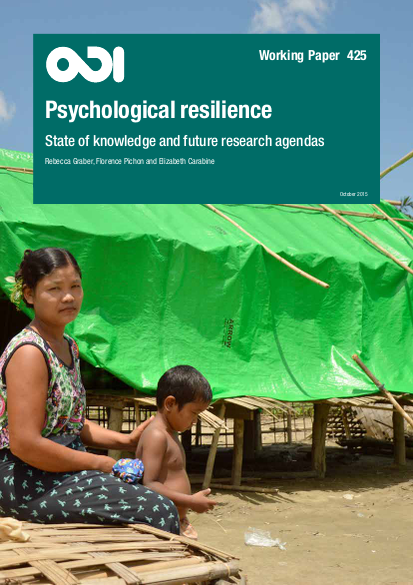
The term resilience has been conceptualised in various different but related ways, across a range of disciplines. In recent years, the concept of resilience has grown rapidly in both policy and academia. Currently, there are multiple efforts across various communities of practice to find convergence in ways of thinking about resilience.
Psychologists have particular understandings of resilience, focusing on positive psychological adaptation through the development and use of strengths, support and meaning-making. There have been few efforts to learn from these in climate and disaster communities. Responding to this gap, this literature review aims to summarise the extent of the evidence, framed around the following questions:
- How has the concept of resilience been defined and applied by leading academic researchers in the field of psychology in recent years?
- What protective mechanisms are important in promoting wellbeing and protecting against risk in individuals?
- What are the most important lifecycle factors contributing to an individual’s resilience in the long term?
- How can resilience in individuals be measured? What are the primary tools and frameworks that are being used?
- How can an individual’s resilience be strengthened through interventions?
- What is the future of psychological resilience research and practice